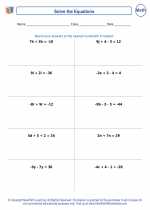Linear equations -> commutative property
Commutative Property
The commutative property is a fundamental property in mathematics that applies to binary operations, such as addition and multiplication. It states that the order of the numbers does not affect the result of the operation. In other words, when you add or multiply two numbers, you can change the order of the numbers and still get the same result.
Addition
The commutative property of addition states that for any two numbers a and b, the sum of a + b is equal to the sum of b + a. In mathematical terms, this can be expressed as:
a + b = b + a
Multiplication
Similarly, the commutative property of multiplication states that for any two numbers a and b, the product of a x b is equal to the product of b x a. In mathematical terms, this can be expressed as:
a x b = b x a
Examples
For example, let's consider the following addition and multiplication:
For addition: 3 + 5 = 5 + 3
For multiplication: 4 x 7 = 7 x 4
Study Guide
To better understand the commutative property, it's important to practice with various numbers and operations. Here are some study guide questions and examples to help reinforce your understanding:
- What is the commutative property of addition?
- What is the commutative property of multiplication?
- Provide examples of addition and multiplication that demonstrate the commutative property.
- Are there any operations that do not follow the commutative property? If so, provide examples.
- How does the commutative property apply to real-life situations?
By practicing these questions and working through various examples, you can solidify your understanding of the commutative property and its applications in mathematics.
[Commutative Property] Related Worksheets and Study Guides:
.◂Math Worksheets and Study Guides Eighth Grade. Linear equations
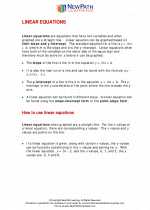
 Worksheet/Answer key
Worksheet/Answer key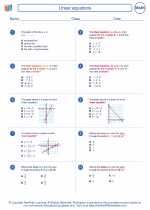
 Worksheet/Answer key
Worksheet/Answer key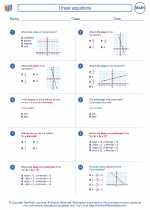
 Worksheet/Answer key
Worksheet/Answer key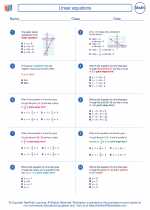
 Worksheet/Answer key
Worksheet/Answer key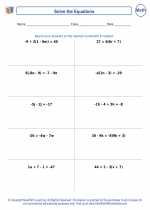
 Worksheet/Answer key
Worksheet/Answer key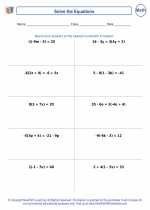
 Worksheet/Answer key
Worksheet/Answer key